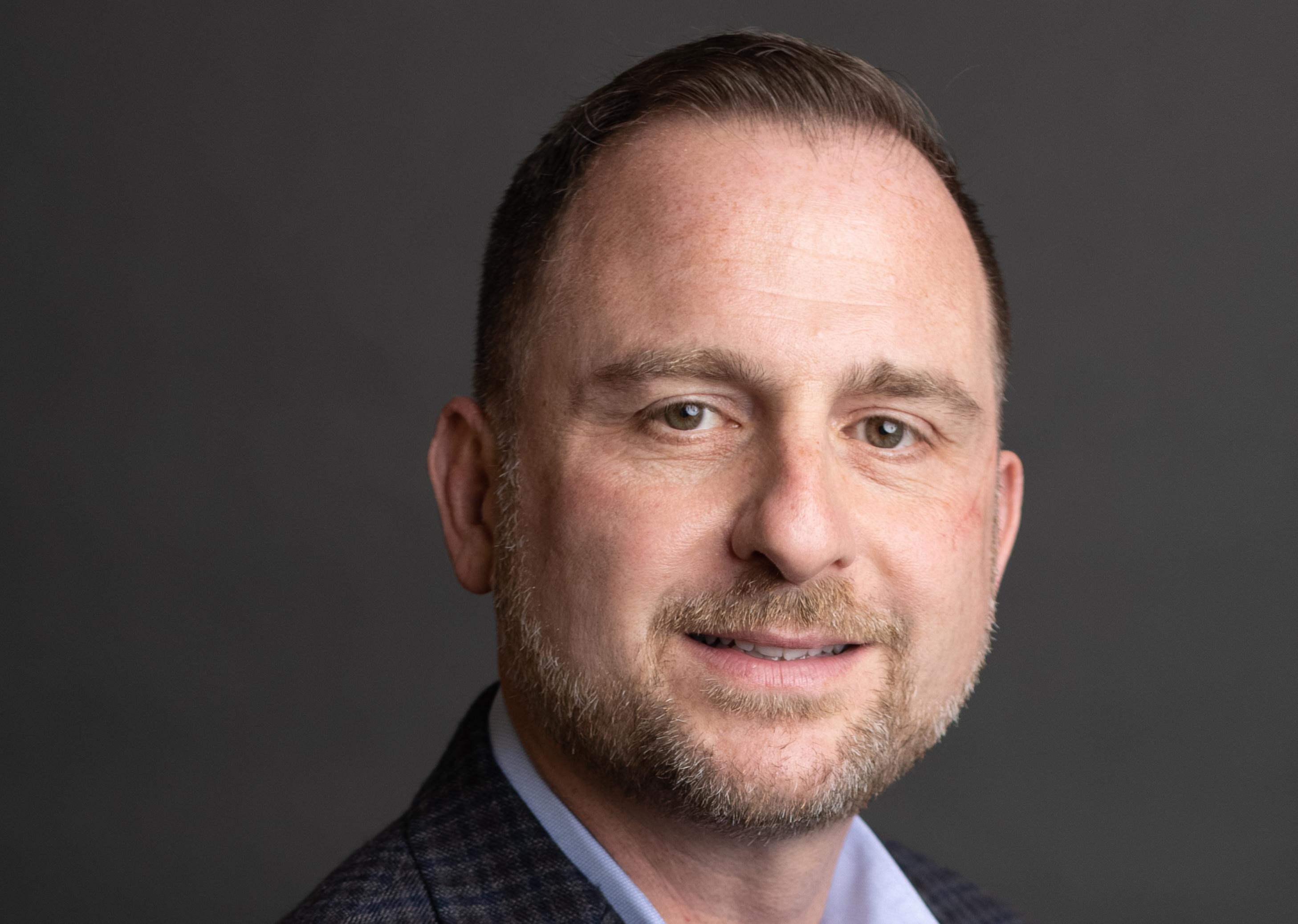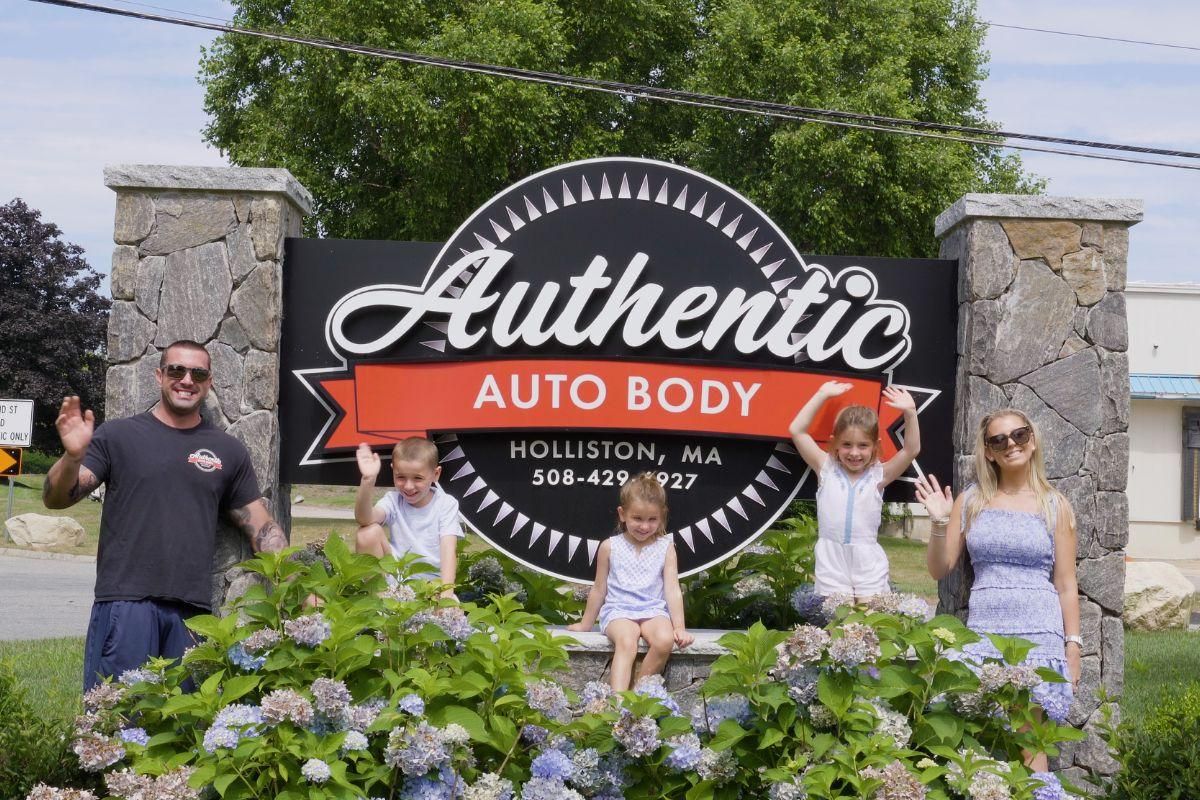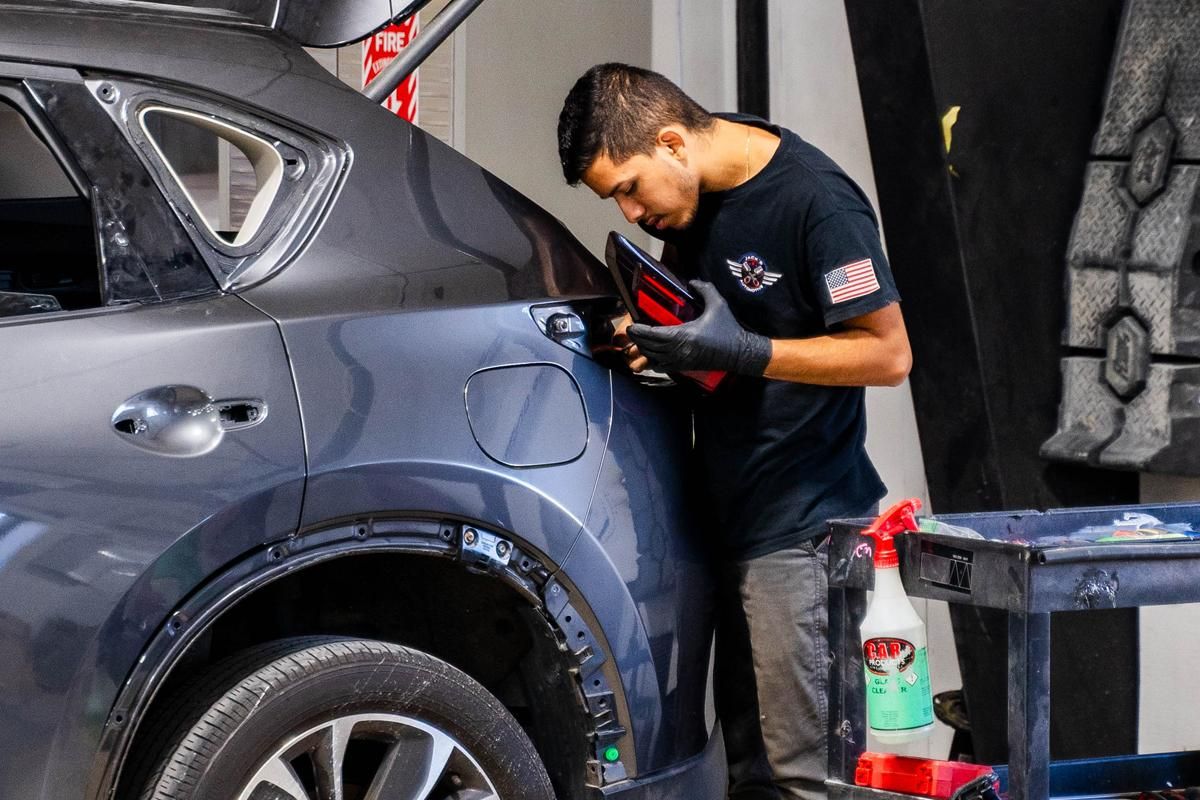Boy that “Mass market” is a tough crowd.
Massachusetts is widely seen as offering a difficult dynamic for body shops -- with labor rate reimbursement the big bugaboo everyone mentions -- but it still attracts, garnering its share of attention.
Its share is small, but growing. At the same time, more moves might also make it more palatable by new, professional practices.
Private Equity Players Savvy the Barriers to Entry
VIVE Collision doubled its presence to six sites here in 2024, according to Focus Advisors. They’re “the only national consolidator,” said Madeleine Roberts Rich, senior associate in Focus’ automotive M&A practice.
 Vartan Jerian Jr.
Vartan Jerian Jr.
It’s “fishing where they ain’t,” as the saying goes. And if no one likes you, your only friends are your best ones. VIVE CEO Vartan Jerian Jr. told Autobody News in November the lack of certified collision repair shops locally was a draw, and the company is “continuing to build scale in the markets we’re in.” VIVE entered Vermont in mid-December, its ninth state and 52nd location.
Envest Private Equity bought into Massachusetts in August, with the Virginia-based investor’s first acquisition, Authentic Auto Body in Holliston.
Boston born-and-raised Envest partner Patrick Keefe noted the limited consolidation, and the chance to “build a brand, a best-in-class team -- the talent and the techs.” Envest is closing on a second shop that, like Steve Proia’s Authentic, has been a top-10 operator here.
Other operations are out there. Facebook poster Carl Heitman recently noted a “body shop and used car dealer” in central Massachusetts for sale, saying it netted $450,000 a year on the two businesses.
Lots of Shops, Lots of Issues, Possible Benefits
Hundreds more might be ready.
“It’s highly fragmented; we saw a lot of opportunity,” Keefe said.
The eight largest indie MSOs have between three and six locations, Focus Advisors data show.
Florida-based Zoran Pipercic and Pantelis “Peter” Alexopoulos in New York are sell-side M&A advisors to body shops. Alexopoulos said they rep 30 collision centers in Connecticut and Massachusetts.
A LaborRateHero.com search returns at least 97 shops within 25 miles of Fenway Park. Some dirt is Boston, greenspace, and underwater in the Charles River, so Massachusetts doesn’t lack for collision centers.
The idea is some could improve under new ownership.
Pipercic said, “We plan to work more with Steve.”
That’s Steve Proia, who sold Authentic to Envest.
“Those shops you saw [near Fenway] are all busy,” Proia said. “We have the worst drivers in the country.” He sees a new cadre of operators coming up in the commonwealth, in line with trends elsewhere.
“We’re young and hungry, with OEM certifications, following procedures,” he said.
Keefe sketches this as “training, education, diligence.”
Less competition for acquisition, and industry direction is skating to where the puck will be.
“I understand the competitive market,” Keefe said. “We’re aware of the challenges.”
Low Labor Rates Just the Beginning, But Maybe Ending?
Cost of living is higher in Massachusetts, Roberts Rich said it’s “difficult to get real estate and land use,” and operators describe Massachusetts as “just brutal” for labor rate reimbursement.
In North Attleborough, Bill Beckett has had Chestnut Auto Body for sale. Near Massachusetts’ southern border with Rhode Island, the shop can’t compete with rate reimbursements in its neighboring state, nearly double what he gets.
Shops to the north see this, too.
“Our labor rate is 25% higher” than Massachusetts’, said Mary Winning, who manages Manchester Collision Center in New Hampshire, “and I don’t pay a state tax on parts.”
It goes beyond borders. Authentic’s Holliston home, in mid-Massachusetts, fights for help across industries.
 Steve and Gabrielle Proia, pictured here with their three children, bought Authentic Auto Body in 2016 and sold it to Envest Private Equity in August 2024.
Steve and Gabrielle Proia, pictured here with their three children, bought Authentic Auto Body in 2016 and sold it to Envest Private Equity in August 2024.
“Our reimbursement rate is $40 an hour,” Proia said. “You can go be a plumber and start at $70.”
SCRS Executive Director Aaron Schulenburg calls such challenges “well-documented,” hitting the best shops the new breed of operators is arguably aiming at.
“Well-trained, well-equipped repair facilities are struggling to get adequate reimbursement,” he emailed. The system “has failed to allow small businesses to adjust their market pricing,” based on business reality.
“It is ripe for a change that recognizes businesses” committed to quality, safety, training and investment.
It’s coming, Proia said.
“Part of what we’re trying to create, this environment, is bringing on younger techs, showing them this is a real career,” he said.
Massachusetts law might also be catching up to a “mature” industry experiencing disruptive new-growth pangs. Two bills, SB 2643 and HB 950, last year were the latest attempts to reform rates. Each stalled in committee.
Proia is cautiously optimistic. “It’s not something we’re banking on, but if it works out … ”
His voice drifts, but market positives to observers -- and buyers -- are a “glass half-full” proposition anyway.
“It’s tough to do business, but” lucrative, said Focus’ Roberts Rich. “There’s wealth there.”
Electric vehicle adoption is high, “and EVs tend to be really good for body shops” she said.
“We have no DRP, no insurance referral list,” Proia said, also alluding to average ticket, where less volume isn’t an issue. “We like to have the authority to repair the car properly, and our clientele can support that.”
VIVE’s Jerian through a spokesperson emailed an echoed call for “repair quality and operational consistency … strengthening OEM partnerships, and … technician training and development.”
He wrote the company sees tough local aspects “not as barriers, but as catalysts for change” and “[believes] in the market’s untapped potential.”
Ben Shimkus contributed to this report.














Paul Hughes